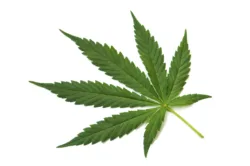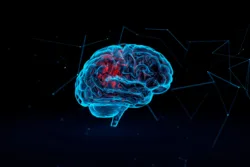Ketamine Abuse and Addiction

Ketamine is a dissociative anesthetic that has a legitimate medical use. However, it is also frequently abused due to its mind-altering effects.
Ketamine is given through IV infusions medically. When it’s abused, it can be taken as a pill, snorted, smoked, or mixed in a drink. It is known by various street names, including Special K, Super K, KitKat, and Ket. The substance is popular in nightclubs and is often labeled as a “party drug.”
What Are the Effects of Ketamine?
Ketamine produces a variety of physical and psychological effects in the user.
Psychological Effects
- Dissociation
- “Out of body” or “near death” experiences
- Hallucinations and delusions
- Changes in physical perception
- Agitation, excitement, and restlessness
- Euphoria
- Confusion
- Dreamlike state
- Problems with concentration and memory
Physical Effects
- Drowsiness
- Weakness
- Involuntary muscle or eye movements
- Impaired motor function
- Irregular heartbeat (fast/slow)
- Upset stomach, nausea and vomiting
- Pale/bluish lips, skin, and fingernails
- Rash
- Hives
- Blurred vision
- Bloody urine
- Difficult or frequent urination
- Convulsions
- Seizures
- Dizziness or fainting
- Difficulty swallowing
- Chest pain or tightness
- Respiratory issues (trouble breathing or shortness of breath)
Risks of Ketamine Use
Using ketamine over time can lead to negative long-term effects such as:
- Ulcers in the bladder (ulcerative cystitis)
- Kidney problems
- Stomach pain
- Depression
- Memory loss
There is also the risk of overdose, especially when taken with alcohol.
Ketamine’s effects make users susceptible to injury or assault. Because of the drug’s dissociative properties, users may sustain serious injuries and not even realize it. Motor impairment caused by ketamine makes it difficult for someone to fight or defend themselves. For this reason, ketamine is used as a date rape drug.
Ketamine As a Treatment for Depression and PTSD
Recently, ketamine has been studied as a potential treatment for depression and post-traumatic stress disorder. Some medical professionals prescribe the drug “off-label,” meaning for a use that the FDA hasn’t approved yet. It can be administered via infusion or nasal spray.
Some patients have found that ketamine relieves their depression or PTSD symptoms, especially suicidal thoughts. However, there is the risk of abuse with this drug. More research is needed to determine the safety and effectiveness of ketamine as a treatment for depression or PTSD.
Is Ketamine Addictive?
The U.S. Drug Enforcement Agency classifies ketamine as a Schedule III Controlled Substance, meaning it has the potential for “moderate or low physical dependence or high psychological dependence.” This means that individuals may come to rely on the drug physically or psychologically and experience withdrawal symptoms if they stop using it.
Addiction is different from dependence, although it may involve dependence. Addiction is a compulsive need to keep using a substance. It can occur with any mind-altering drug, including ketamine.
How is Ketamine Addiction Treated?
Unlike opioids or alcohol, there are no medications approved to treat ketamine addiction or dependence. The condition is treated through medically supervised detox and counseling. Some people benefit from structured treatment programs like partial hospitalization or a stay in a residential facility.
Trained drug counselors work to change their clients’ attitudes towards drug use and replace negative behaviors with positive ones. They may use a variety of evidence-based techniques, from motivational interviewing (helping a client find the motivation to change their behavior) to cognitive behavioral therapy (teaching a client how to identify and challenge irrational thoughts).
If you or someone you know has been abusing ketamine, consider reaching out to a trained counselor for help. It can be very difficult to stop using substances on your own. Having a mental health professional to guide you through the process can make a huge impact. Your counselor will offer insights and proven techniques and, most importantly, they will encourage you on your recovery journey.
Start working with a compassionate counselor from High Focus Centers PA today. Call us at (610) 644-6464 to get started.
References:








